Sustainability
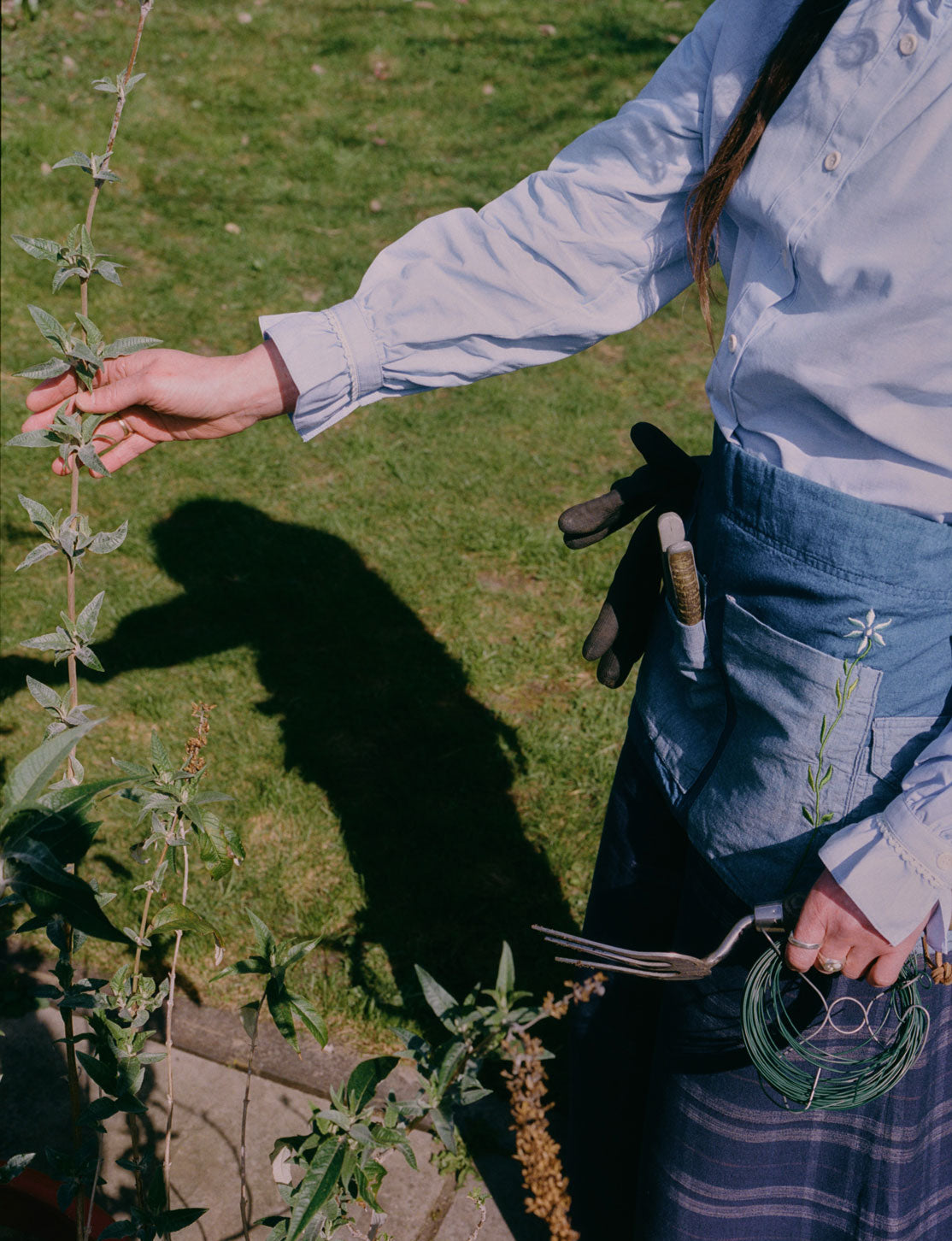
Sustainability at Saywood
Crafted with care for you and our planet.
Thoughtful design grows from conscious roots. Crafted in the UK, our intentionally small collections are made from natural materials chosen for their effortlessness, comfort, longevity and minimal environmental impact. From thoughtful design to ethical supply chains and wider circularity initiatives, we’re committed to slowing down fashion by creating wardrobe essentials worth treasuring year after year.
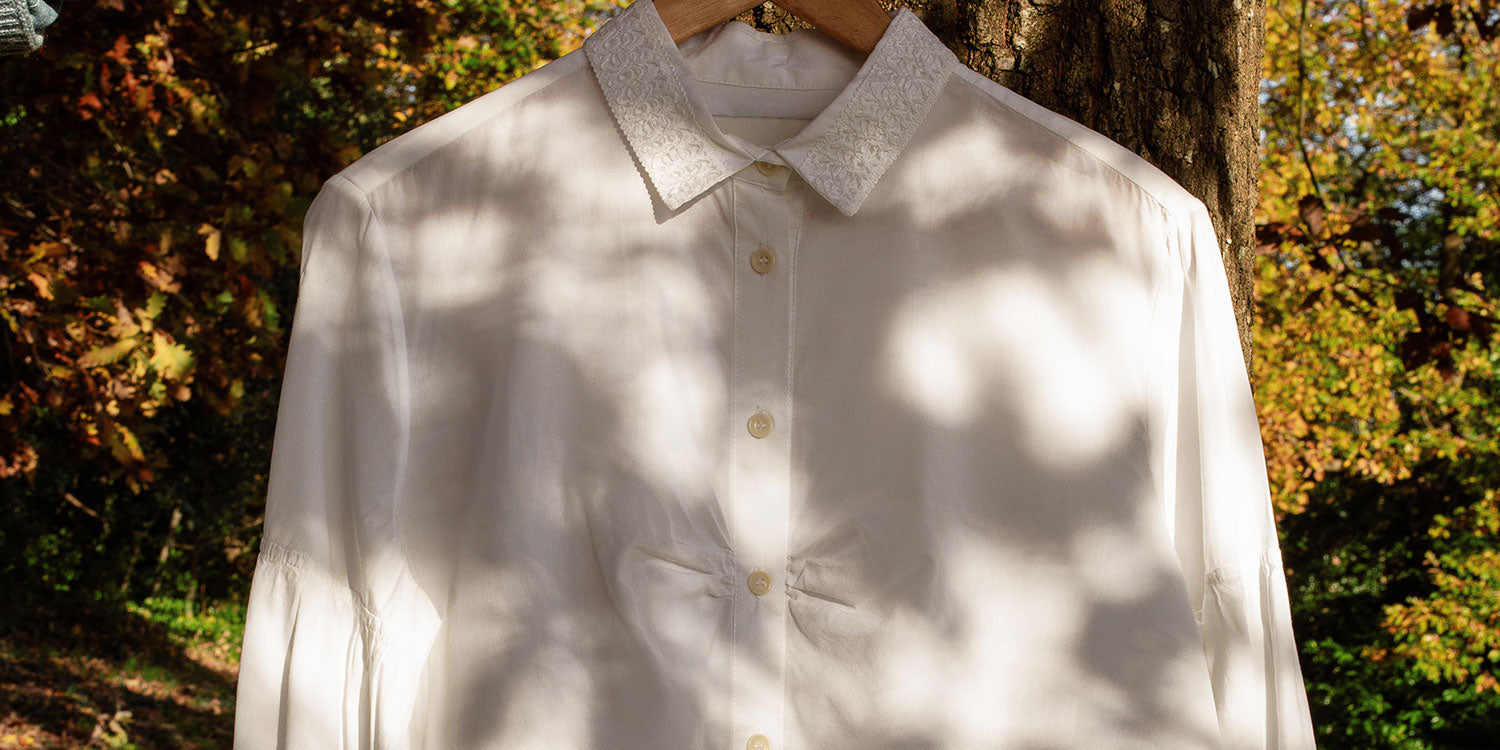
Our Materials
At Saywood, our materials are as kind to your skin as they are to the planet.
We choose breathable, natural fibres for their comfort, non-toxicity and quality, favouring fabrics that wear beautifully, feel soft against the skin and are produced with care for the Earth.
Our collections incorporate recycled yarns and surplus cloth to extend their life and reduce textile waste. From seed to stitch, we trace our materials through trusted certifications, including OEKO-TEX Standard 100, GOTS organic cotton and the Global Recycled Standard - all sourced from heritage mills that share our mission to work towards a more sustainable fashion future.
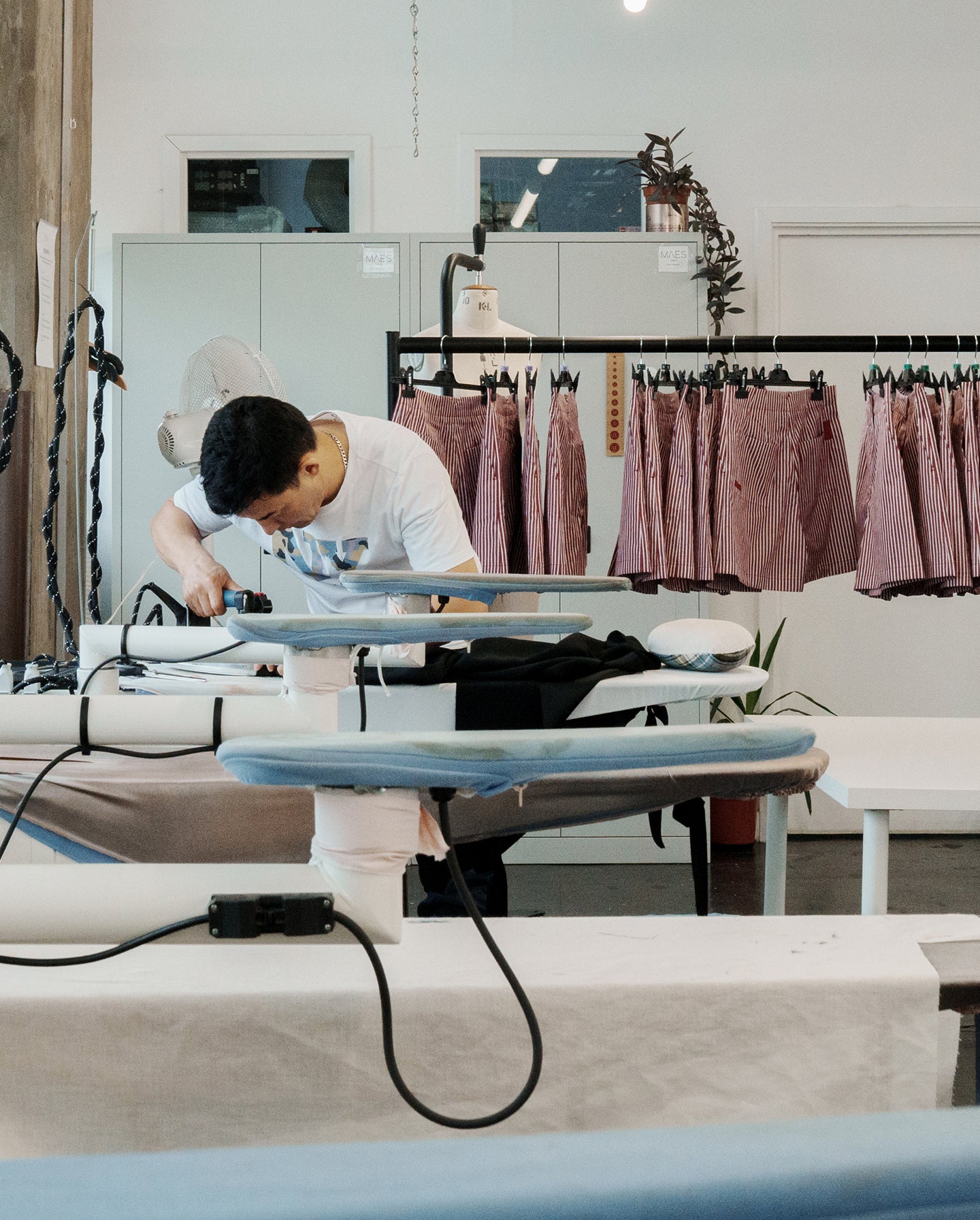
Our Makers
When it comes to our makers, we’re proudly selective.
Curating a trusted, ethical supply chain has taken time - but it’s time well spent. Each of our partners shares our values: care for people and planet, a respect for high-quality heritage craft and a commitment to creating beautiful, long-lasting, timeless wardrobe essentials.
From the intricate Saywood flower embroidery stitched by London-based Echo3, to the revival of natural button-making in the UK by Courtney & Co, to Duca Visconti - the only mill in the world still using a hand-guided corduroy process - the stories of our talented makers are woven into every piece.

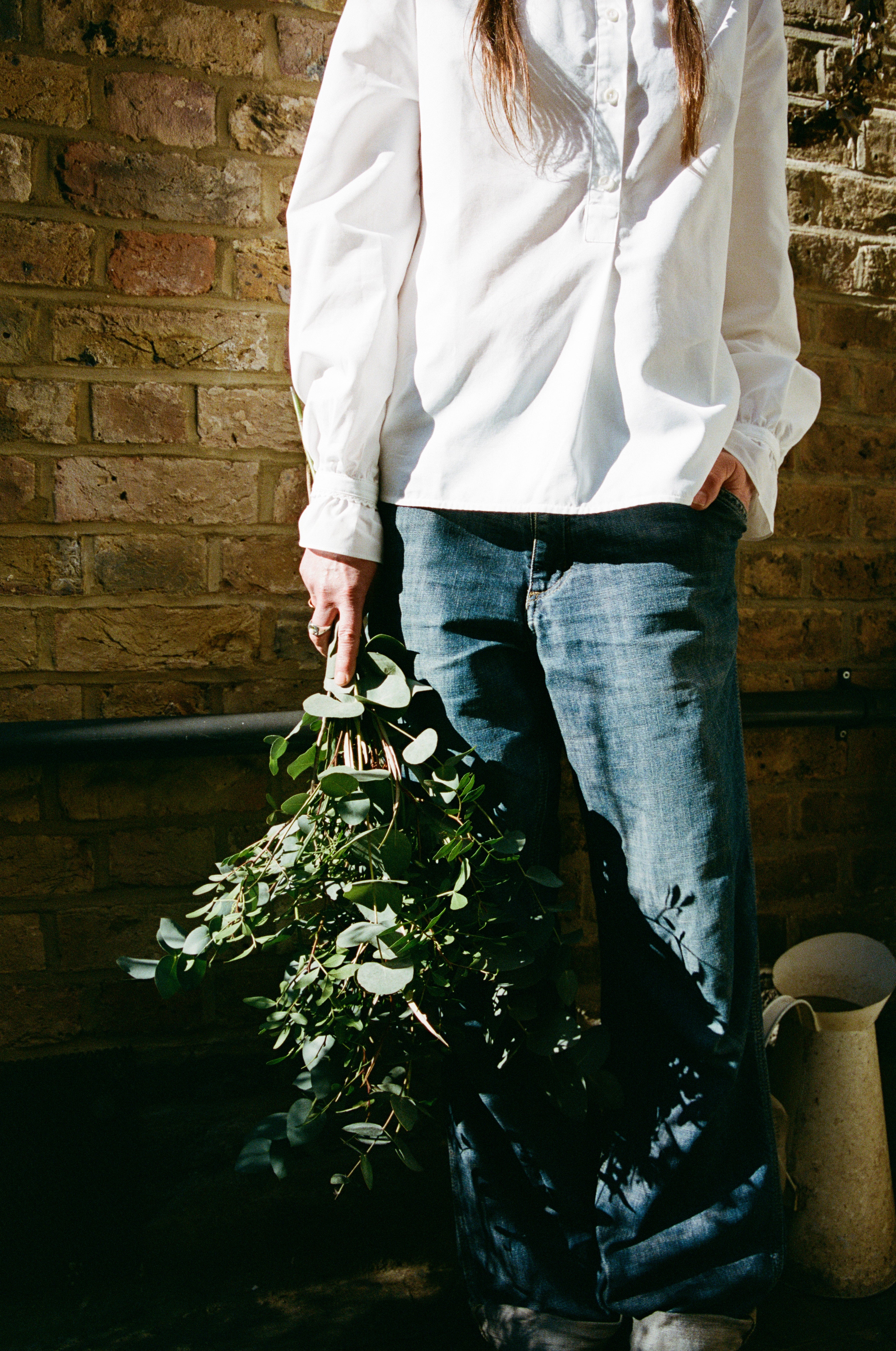
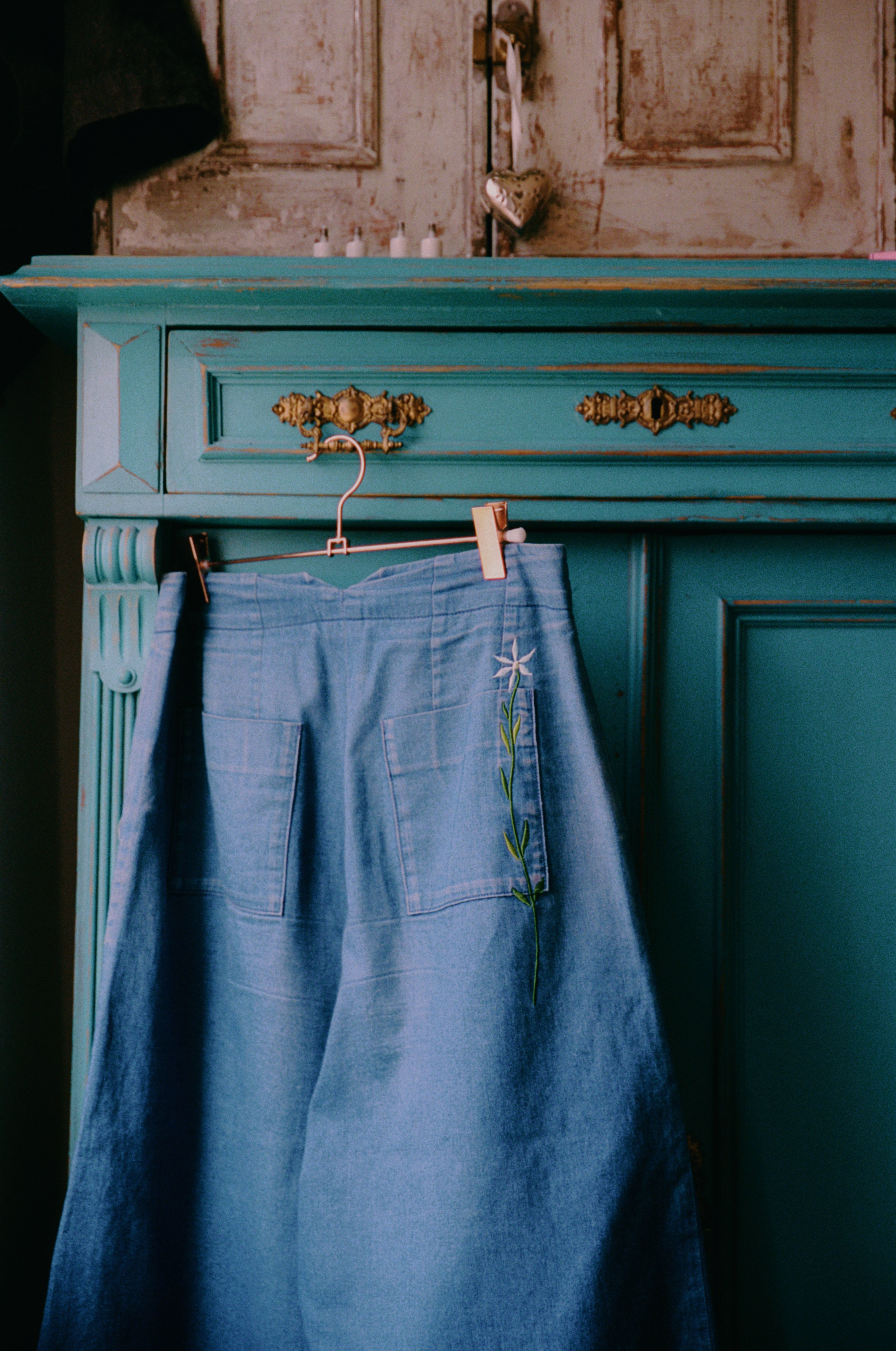
Caring for Your Clothes
Saywood pieces are designed to be lived in, loved deeply and cherished through every season.
With a little care, your clothes… like the best things in life… become more special over time. Cool washing, air drying and proper storing go a long way in helping them last for years to come.
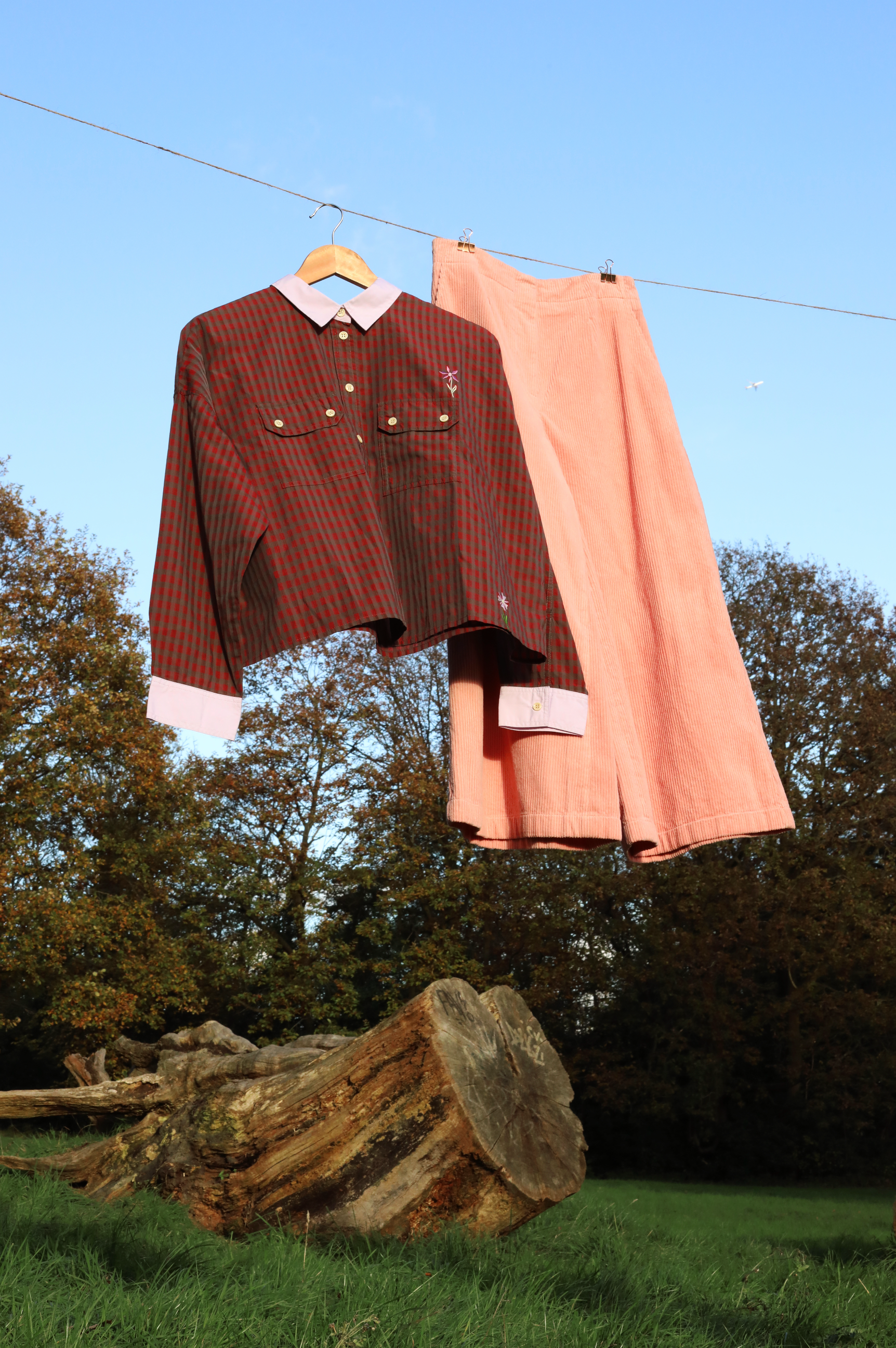
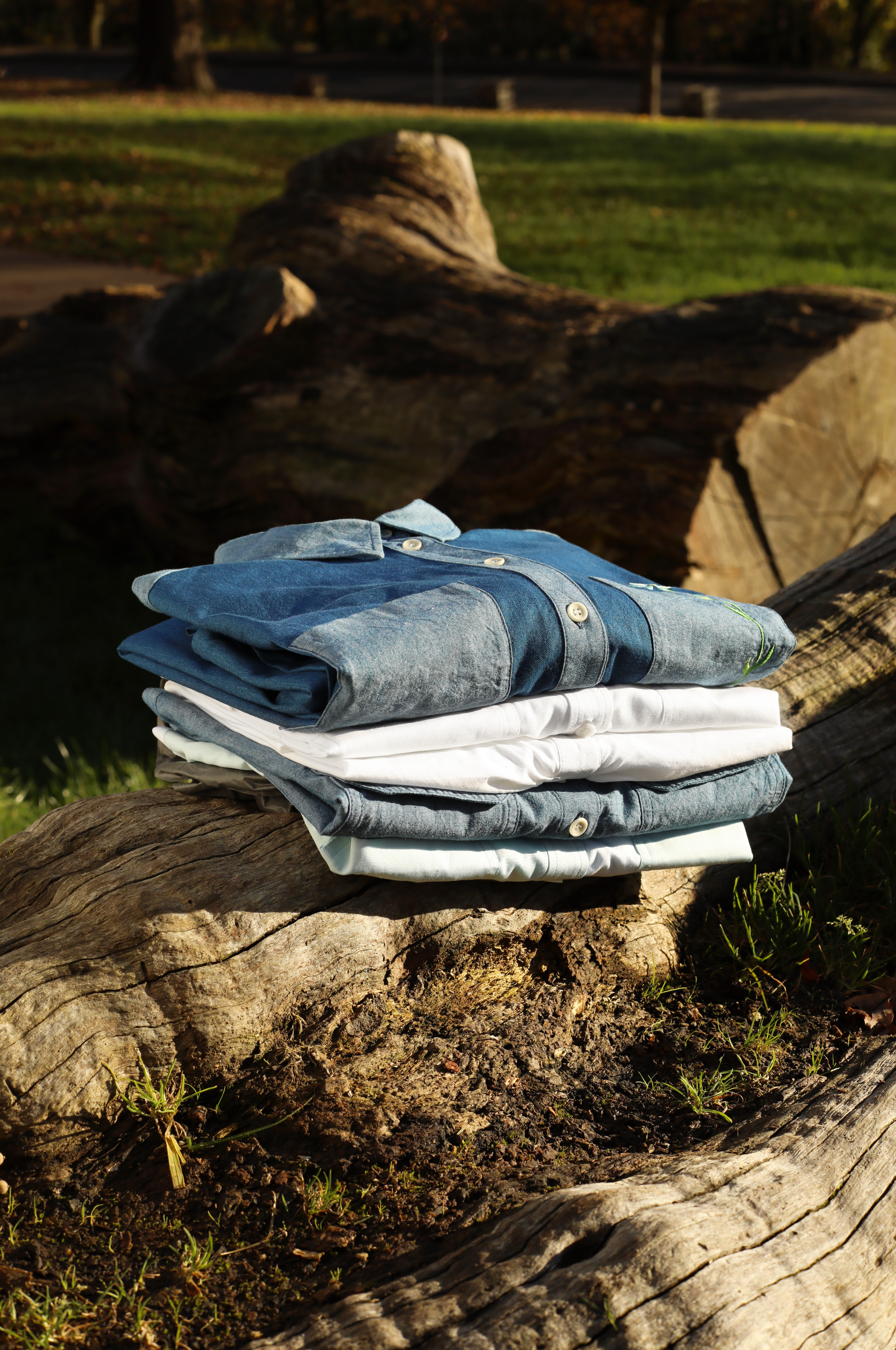
Circularity
Even after they're hanging in your wardrobes, we recognise the responsibility we have towards our pieces.
That's why we’re building a circular approach so each garment can be repaired, redesigned, resold or responsibly recycled.
If you’re ready to part ways with your Saywood piece, we’ll gladly take it back and find it a new home in our upcoming Loved Again section. You’ll receive £30 towards your next order as a thank you. If it’s an update to your existing piece you’re after, we also offer redesign services to help tailor your Saywood piece to fit whatever season of life you’re in.
We’re working towards offering in-house repair and recycling because caring for what we create means staying accountable at every stage, so you can continue to wear your well-loved Saywood pieces again and again. A Digital Product Passport is also in the works, helping you trace the intimate journey of each Saywood piece - and add your part to its story.

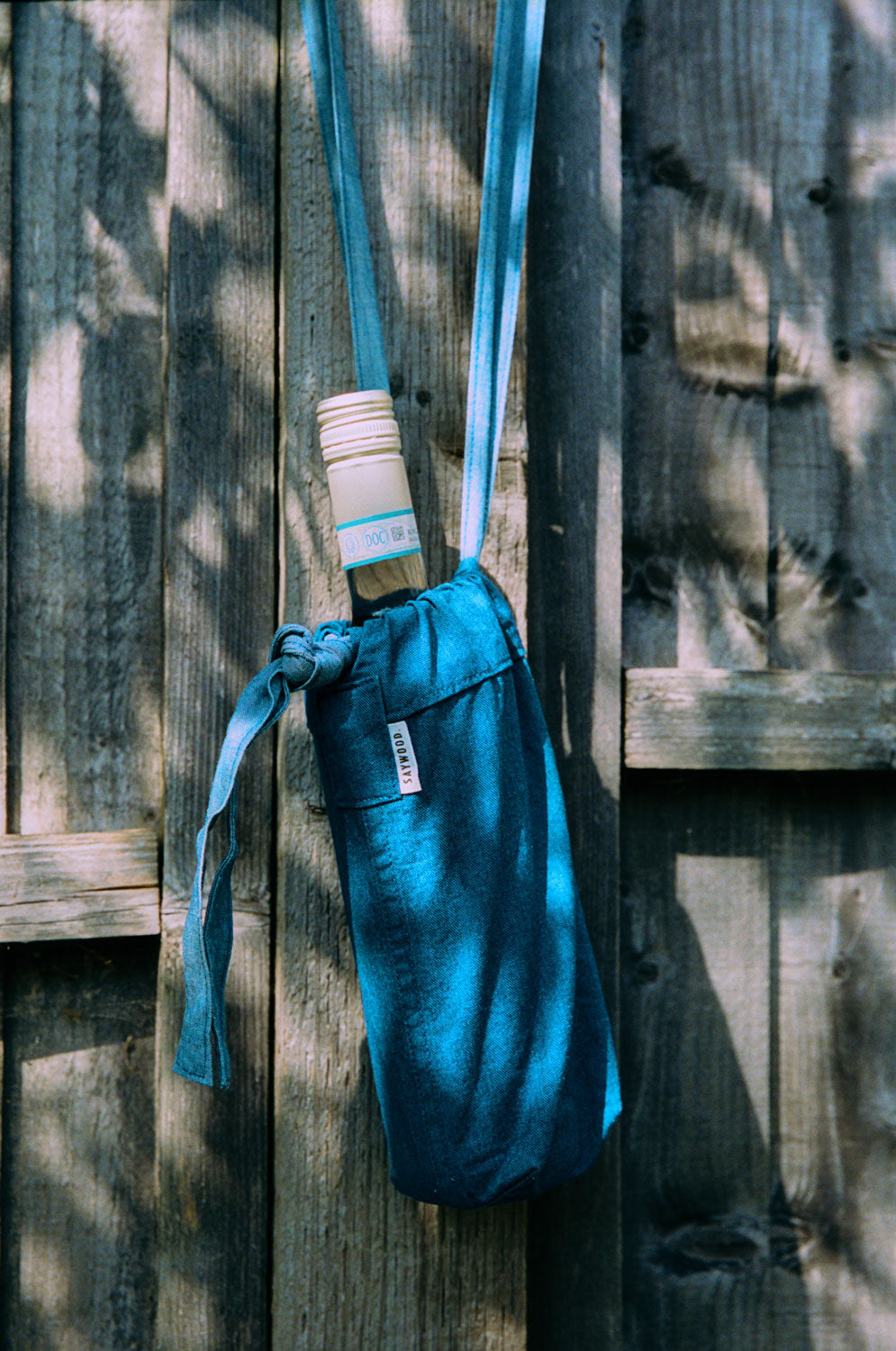

Saywood for Good
As a sustainable fashion label, we know lasting change takes collective effort.
Saywood for Good is our way of giving back, supporting causes that protect people, the planet and the future we all share.
Each year, we select three charities, non-profits or NGOs aligned with our values and sustainability goals to support with a portion of our revenue. It’s one small way we extend our impact beyond the wardrobe.
Past initiatives include Labour Behind The Label, Forever Lung and Solar Sister. Our new partners for the Saywood For Good initiative for 2026 will be announced shortly.
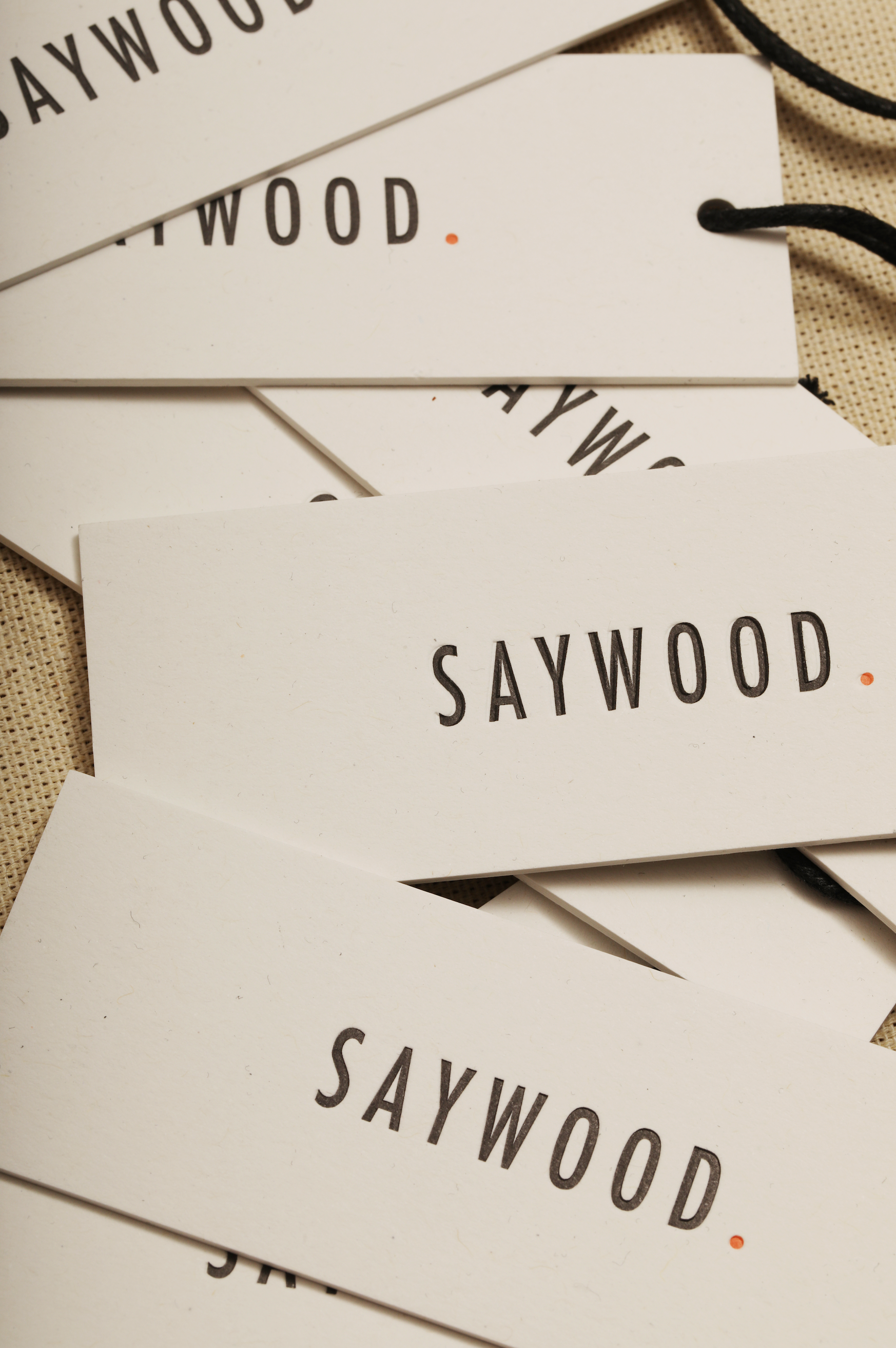
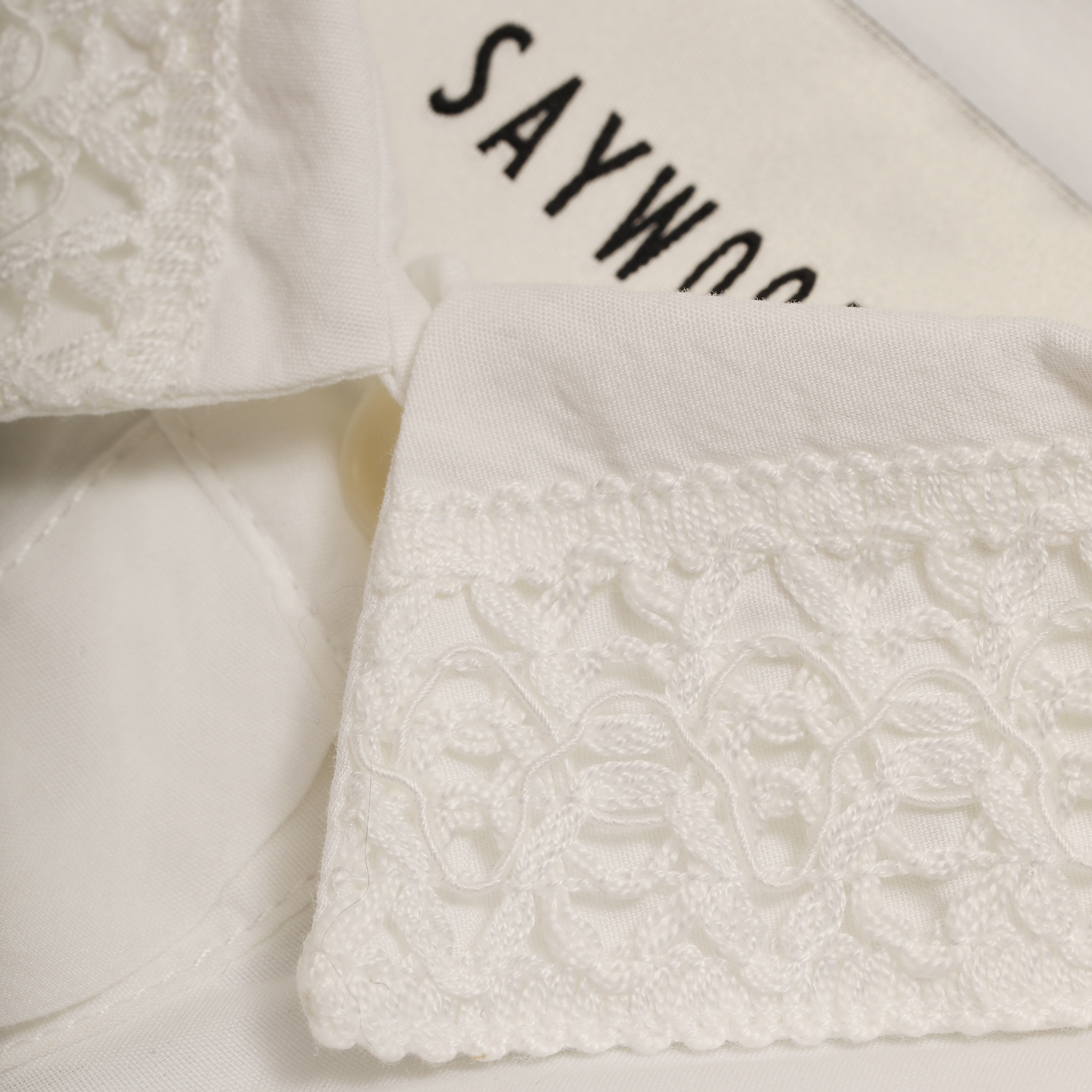
Labels, Packaging & Shipping
Every detail matters - right down to the label.
We use recycled polyester back neck labels made from post-consumer waste, chosen for their durability and ability to resist absorbing colour when washing. Our care labels are made from cotton so soft you won’t even feel they’re there. After all, our Saywood pieces are made to be worn often and easily cared for.
Our hang tags are made from recycled and recyclable paper tied with biodegradable, unwaxed cotton string. Packaging is thoughtfully considered, too, using FSC-certified, recycled materials that are 100% recyclable.
When your order is neatly packed, it’s lovingly posted to you via our climate-positive shipping partner, Freight Brokers, who offset the carbon emissions of every parcel. Since 2019, they’ve offset over 17 million kilograms of CO2 - and counting!
We are grateful to be recognised by Positive Luxury for the role Saywood is playing in driving forward sustainability within the fashion industry.



